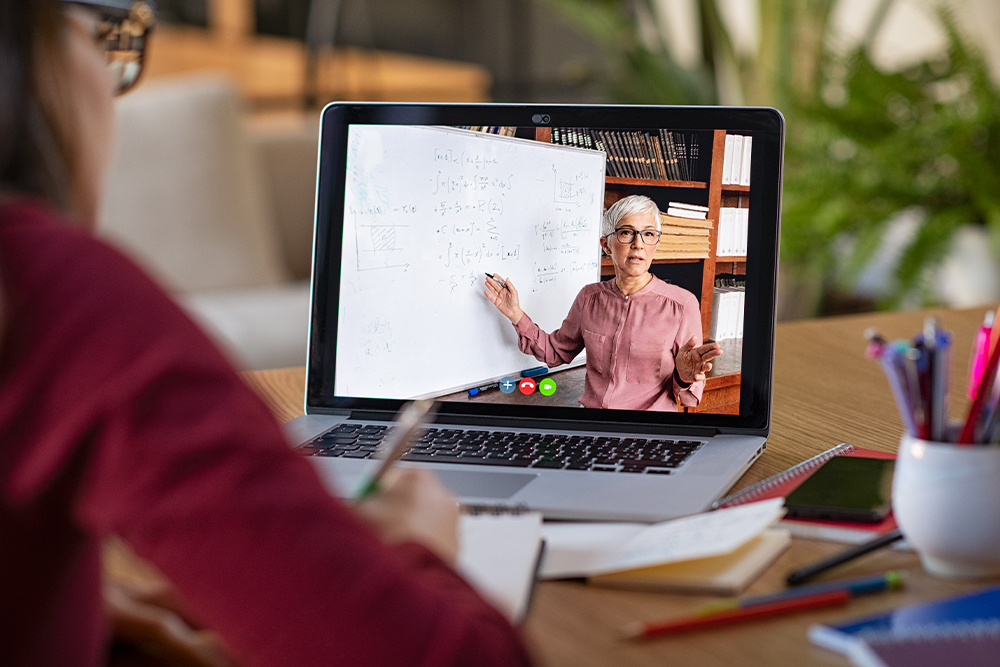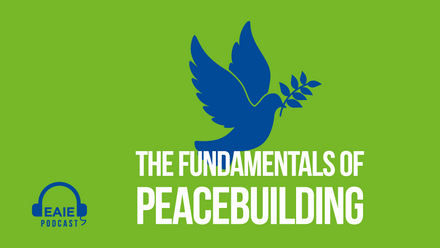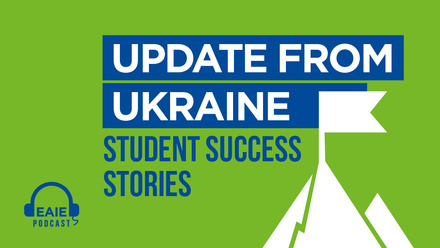Lessons from Italy: a conversation with Amanda Murphy

As one of the early epicentres of the global COVID-19 outbreak, the higher education sector in Italy has in many ways been on the forefront. This was reflected in the results of our early-March survey on the developing impact of coronavirus, in which Italian respondents noted at that time much greater effects on inbound student and staff mobility, as well as event cancellations.
To offer a snapshot of the situation in Italy, Laura E. Rumbley, EAIE Associate Director of Knowledge Development and Research, spoke with Amanda Murphy, Professor of Language and Linguistics at the Università Cattolica del Sacro Cuore and Director of the Centre for Higher Education Internationalisation. In this conversation, she discusses the challenge of moving classes online, ways to give students extra support, and the long-term impact of COVID-19 on international higher education.
LR: In addition to being among the earliest and hardest-hit regions of the world in the COVID-19 outbreak, Italian universities were among the first European institutions to cancel classes and close down campus activities. What has that experience been like? Particularly, from your perspective as a faculty member, are there any specific lessons learned that stand out for you as your university takes steps to rapidly move teaching and learning and other activities online?
AM: The first thing I noticed was the change in communication style. The university uses Blackboard, which has got loads of options to record lectures, to live stream them etc. But while all teaching staff are required to have a Blackboard page, in fact a very small proportion of the staff really knew how to use it before the crisis. Suddenly everybody was using it to send emails, make schedules, upload and download files. It was unknown territory for most people.
On the one hand, the university was fortunate that it had this technology. They immediately started webinars on how to use this platform to teach online, from basics to advanced. That does give you a sense of security; you can learn what you need to learn. Teachers have been moving so fast to move courses online, which has involved a tremendous effort on our part. I would normally just walk into my class, like I have been doing it for three years, without even having to think about it – I got my slides and I just talked. But suddenly as a teacher you are thinking, “how do I make this into something that somebody on their own, in their room, could get something out of?” So what we are giving out has to be very carefully crafted.
Since you might not be seeing anybody at all except virtually, it's so much more important to cultivate real relationships
One of the messages that I want to give is about community. Teaching at a university can sometimes be a very solitary job, because you have your class and you have your office and your office hours, but there may not necessarily be a lot of communication between members of staff. And since we've gone online, and now you might not be seeing anybody at all except virtually, it becomes so much more important to cultivate real relationships. That is the only way that you can help people feel like we've got to get this show on the road and do it together.
This has taught me so much about communication as well, because communication is so 360 degrees. You know, when you are communicating only by email or only on a forum, or even by video, there are so many things that you miss. So it teaches you a lot about how to be explicit, which in turn is a good practice for online education.
Finally, I just want to say that I’ve also come to realise that what you can ask from each person under these extraordinary circumstances is really very delicate, especially for our colleagues working in some of the hardest hit cities, like Brescia. What has emerged is much more personal information about the staff, which maybe you wouldn’t normally know. For example, who doesn’t have a good web connection at home, or not even a very good computer, which we never would have expected. Through it all, you just have to help people feel that they matter.
LR: How do you think students are managing and coping with this situation? Are there any reflections or lessons learned at this stage in terms of supporting students?
AM: The first thing that I have tried to encourage staff to do is to record a video or audio message to the class acknowledging the difficult situation that we're all in, that we're all in this together and reminding them that this is a situation none of us have ever experienced before. We don't know how it will play out, but we can still give them as much stability as possible, knowing that everybody is in a very difficult different situation. And having done that myself, I got feedback from my class, saying that they appreciated very much what I said.
Internationalisation as a process and an experience can bring out the strengths and the weaknesses in people and institutions
The second thing is having incredible flexibility, because everybody is in such a different state and because everything now happens via the internet, so access to materials is another thing which has come up from the student point of view. So we've got to be personal, acknowledge the situation and be flexible, because we've got to understand that students may not be able to do what we're asking them.
LR: Stepping out of your own immediate environment into this larger discussion about the world of international higher education, what are you seeing from your perspective as Director of CHEI? What kinds of challenges – and maybe opportunities – is the COVID-19 situation presenting?
AM: I want to say two things on this. The first is that it forces you to ask yourself, “what is the point of all this international perspective?” Because what you see is that a lot of countries immediately put up their barriers. What is the value of having international contacts and an international perspective when nearly every nation is now having to close its borders? From our point of view, what emerges from this is the absolute value of international connections, the value of being in a team with people who are from other countries and the solidarity that can come out of vastly different insights. And the second thing is virtual learning. Online learning is massive around the world, and this is their moment. COIL (Collaborative Online International Learning) will likely come into its own at this particular moment.
On a totally different level, the repercussions of all the problems faced by international students around the world are reflecting tremendously on the management of these international flows and our approaches to things like crisis management and ensuring access to health care for students.
On a human level, we've had to deal with so many critical situations in this crisis. As my colleague and former EAIE President Fiona Hunter has been known to say, internationalisation as a process and an experience can bring out the strengths and the weaknesses in people and institutions. And I think that's very, very true.






